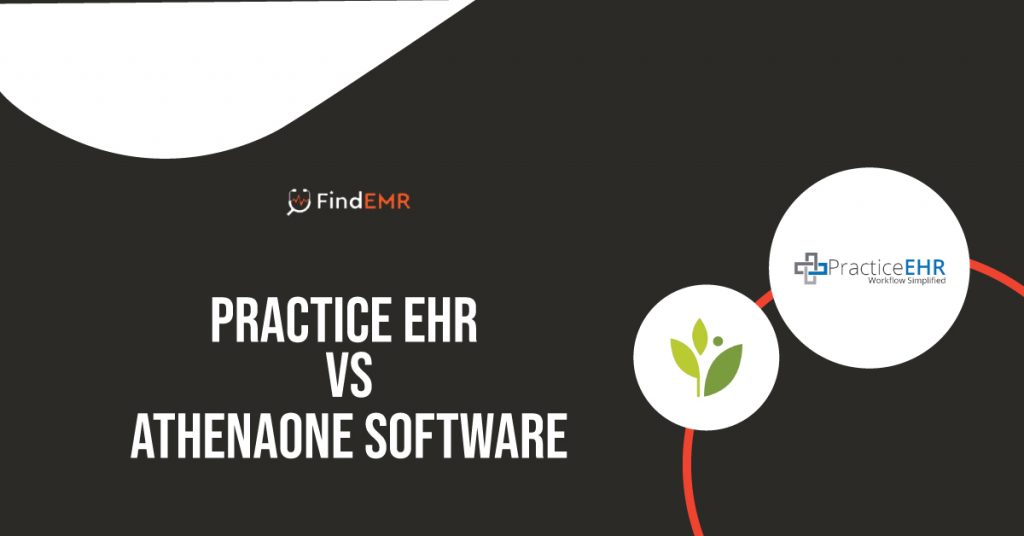Last Updated on June 7, 2024 by Asfa Rasheed
When it comes to practice management software, athena One is the clear choice for small to midsized medical practices. The company invests in its customers and wants to help you grow your revenue. Its EHR solution streamlines administrative tasks and streamlines revenue cycle management. It has a great customer support team and is very affordable.
athenaOne EHR reduces documentation time
The athenaOne EHR is a comprehensive medical record system that reduces the time needed to document patient care. The platform’s integrated tools allow users to order labs, e-prescribe medications, and add diagnoses. It also features a patient portal and HIPAA-compliant messaging. This EHR system also has telehealth capabilities, which enable clinicians to consult with patients remotely.
Physicians and other health care providers spend an average of 21.5 hours in their EHR each week. This figure includes time spent on the EHR outside of patient visits, as well as time spent documenting other medical records. In one study, researchers from athenahealth looked at how much time clinicians spend outside of patient visits and encounters on documentation. They found that the most complex documentation was largely required by larger organizations with more clinicians.
The time needed to document patients in the athenaOne EHR reduced by up to 86%. However, it wasn’t easy to determine if the time saved was a direct result of the EHR or the time spent on charting. However, physicians reported significant time savings during clinic visits, as well as after hours. Many physicians described the time savings as a “breakthrough” in their practice.
Research also shows that clinicians spend more time documenting patient care if they are female. This trend is further reinforced by the fact that women see fewer patients per week than men. Therefore, they spend more time outside the patient appointment hours in EHR than their male counterparts.
It streamlines administrative tasks
Practice EHR software provides an intuitive workflow for healthcare providers to quickly complete tasks and keep records updated. This software is built on a robust platform that addresses the major issues in the healthcare industry. This software helps physicians deliver better patient care and increase their profits. Whether you’re a solo practitioner or a large medical group, Practice EHR can help streamline your administrative tasks.
Practice EHR also provides a full suite of medical practice management solutions designed to streamline processes and streamline workflows. These solutions include electronic health records, practice management software, revenue cycle management solutions, and clearinghouse software. The suite can be customized to fit your practice’s needs. Choosing a single vendor can also reduce your costs.
A three-in-one solution can also give providers a detailed view of their patient population. This can help them better manage their patients and help them manage chronic conditions. It can also help them report the results of tests and create plans of care. The software will also help doctors collaborate with their staff and create positive patient outcomes.
The system can eliminate manual data entry and streamline practice management by enabling doctors to make better use of their time. For example, physicians can easily schedule appointments, and patients can sign in online without the need for any paper forms. In addition, patients can fill out their forms electronically and have their information automatically populate into their chart notes. Patients’ insurance coverage status and copays can also be verified with automatic eligibility checks.
It streamlines revenue cycle management
Revenue cycle management is a key component of a hospital’s financial management. It ensures complete reimbursement and quality care. With proper planning and data-driven analytics, you can ensure that your revenue cycle is as effective as possible. By analyzing your revenue cycle data and implementing effective revenue cycle management strategies, you can make sure that you have a healthy cash flow.
The revenue cycle management process involves verifying patient insurance coverage, submitting health plan claims, and billing patients for share-of-service payments. The health care industry is facing many challenges, including increased financial pressure, workforce shortages, and reimbursement changes. Using an efficient revenue management system can help you streamline revenue-related processes so that you can spend more time treating patients.
The process of billing can take longer when you do not have a dedicated staff to focus on it. In addition, you will spend more time on other billing-related matters than on caring for patients. When billing isn’t handled properly, multiple claims can be processed at the same time. Working with an RCM can streamline the process and save time for physicians and other non-billing staff.
Intelligent automation can simplify the revenue cycle by incorporating artificial intelligence and robotic process automation. By incorporating these technologies into the revenue cycle, you can simulate complex tasks that involve multiple sources of data. These automated processes are ideal for RCM workflows that require time-consuming data entry. By streamlining the process, you can free up valuable staff time to focus on other important areas of the practice.

